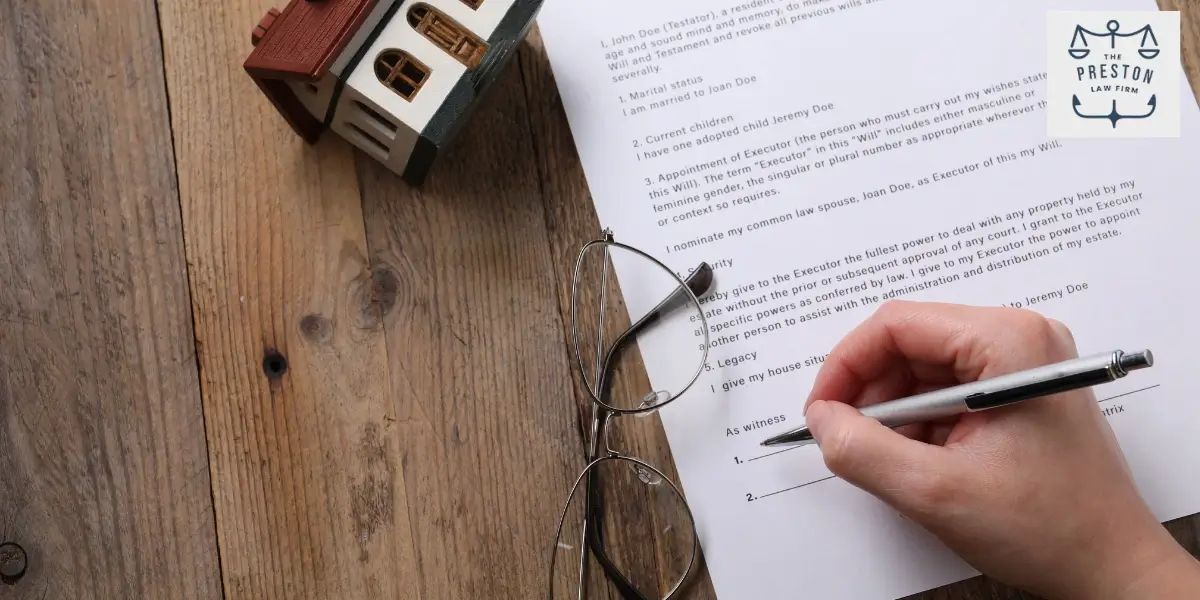|
|
Last
Modified on
Jul 11, 2025
When someone passes away with an estate plan in place, that plan must be executed. Most people’s estate plans pass through probate, which is the legal process of validating an estate plan and then executing it in accordance with that person’s wishes. Probate can end up being a complicated and involved process, depending on the estate plan in question. You may be wondering: Do all wills go through probate in Florida?
Having an estate plan in place can make things go much smoother when the time comes for your family to inherit your assets. If you don’t have an estate plan at the time of your death, Florida’s intestate succession laws will come into play. When that happens, your assets will be divided amongst your immediate family, with your spouse and surviving children taking precedent. That may be completely against your wishes, but a New Smyrna estate planning lawyer can help you figure it out.
Do All Wills Go Through Probate in Florida?
No, all wills do not have to go through probate in Florida. Since probate is the legal process of administering the estate of a recently deceased person, there may be certain assets that are completely exempt from probate. Generally, assets that are solely in the deceased’s name and don’t have a designated beneficiary will go through probate. Assets that are held in trust or are held in joint tenancy will generally pass outside of probate.
A last will and testament tends to serve as a guide for the probate court. The will explains how the deceased wants their assets distributed and who the designated beneficiaries are. It names an executor who will guide this process and manage the estate through probate. Assets that tend to go through probate include real estate, bank accounts, life insurance, retirement accounts, and personal property.
According to statistical data gathered by the U.S. Census Bureau, the median household income in the state of Florida as of 2023 was a little under $72,000 a year. Depending on the household, this may be considered significant income that’s worth developing an estate plan to preserve within the family unit. That estate may have to go through probate.
What Can a Probate Lawyer Do for You?
Going through the probate process can be confusing, overwhelming, and consequential if you fail to meet certain legal requirements. Having an experienced estate planning or probate lawyer by your side can make all the difference as you navigate this process at a time when you may also be in mourning. If you mishandle probate, you could seriously damage the beneficiaries’ inheritance, among other factors. There are several ways that a probate lawyer can help you.
First and foremost, a probate lawyer can offer you neutral third-party assistance. The reading of a will and the subsequent probate process can be a trigger that ignites conflict among certain family members. It’s not uncommon for threats of legal action to be thrown around when a wealthy family member passes away. A probate lawyer can act as a neutral third party to keep things focused and mediate family troubles.
A probate lawyer can also help you address the potentially substantial legal complexities that will come up during the probate process. If you have never been through something like this before, you may not know what to do next or how to handle being a will’s executor, if you’ve been designated as such. Your lawyer can make sure you handle everything in a timely manner and don’t miss any vital filing deadlines.

FAQs
Q: Can You Avoid Probate With a Will in Florida?
A: No, having a will does not automatically grant you the right to avoid probate in Florida. A will dictates the exact wishes of the deceased regarding how they want their assets distributed among their beneficiaries. However, it will still need to go through probate to be properly validated and executed by the court. If you want to avoid probate entirely, you may want to put your assets in a trust.
Q: How Much Does an Estate Have to Be Worth to Go to Probate in Florida?
A: For an estate to have to go to probate in Florida, it has to be worth more than $75,000. If the estate is valued at $75,000 or less, it may qualify for a summary administration instead of probate, which can be a much quicker and more streamlined process. Formal administration, or probate, in Florida is typically reserved for estates of high value in non-exempt assets. Your lawyer can help you determine which process you may have to endure.
Q: What Is Exempt From Probate in Florida?
A: There are several different types of assets that may be exempt from the probate process in Florida. These include:
- Assets held in an irrevocable trust
- Assets with named beneficiaries, such as retirement accounts and life insurance policies
- Assets that are held in joint tenancy with right of survivorship
- The decedent’s homestead property
- Certain personal property, such as vehicles or furniture, may be exempt up to a certain value
Q: Can an Estate Be Settled Without Probate in Florida?
A: Yes, it is possible for an estate to be settled without going through probate in Florida. However, this is only under certain circumstances. If the estate is not worth more than $75,000, it can go through summary administration, which can be a quicker transfer of assets. There are certain ways you can set up your estate to ensure it avoids probate, such as putting your assets in an irrevocable trust.
Reach Out to a Probate Lawyer Today
It’s understandable to be concerned about the probate process. There may be a lot at stake for you and your family. Knowing which estates go through probate and which don’t can be greatly beneficial. Having the right probate lawyer by your side throughout this process can make all the difference.
The legal team at The Preston Law Firm understands the kind of legal help you will need as you go through probate. Contact us today to speak to a valued team member about your case.





